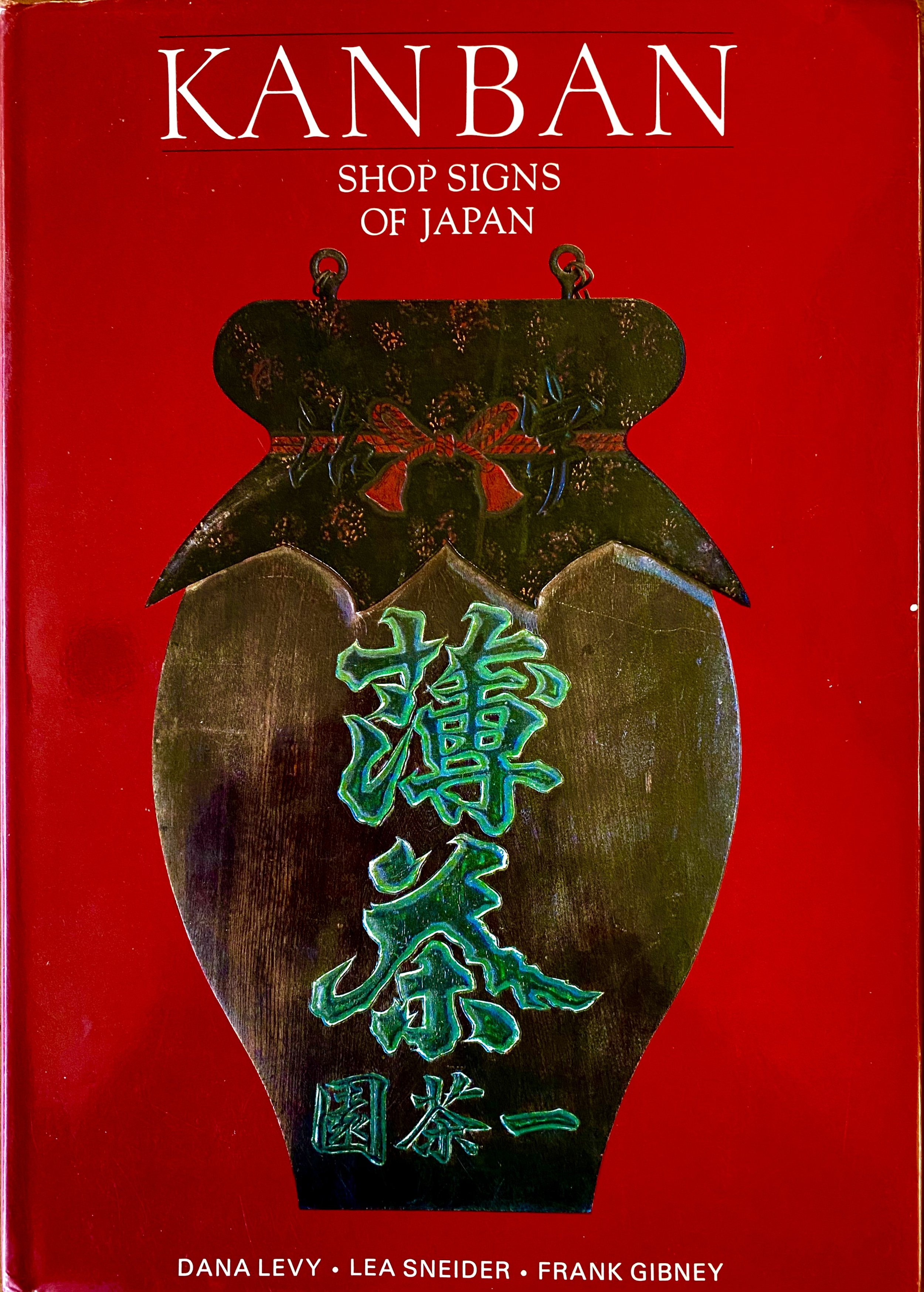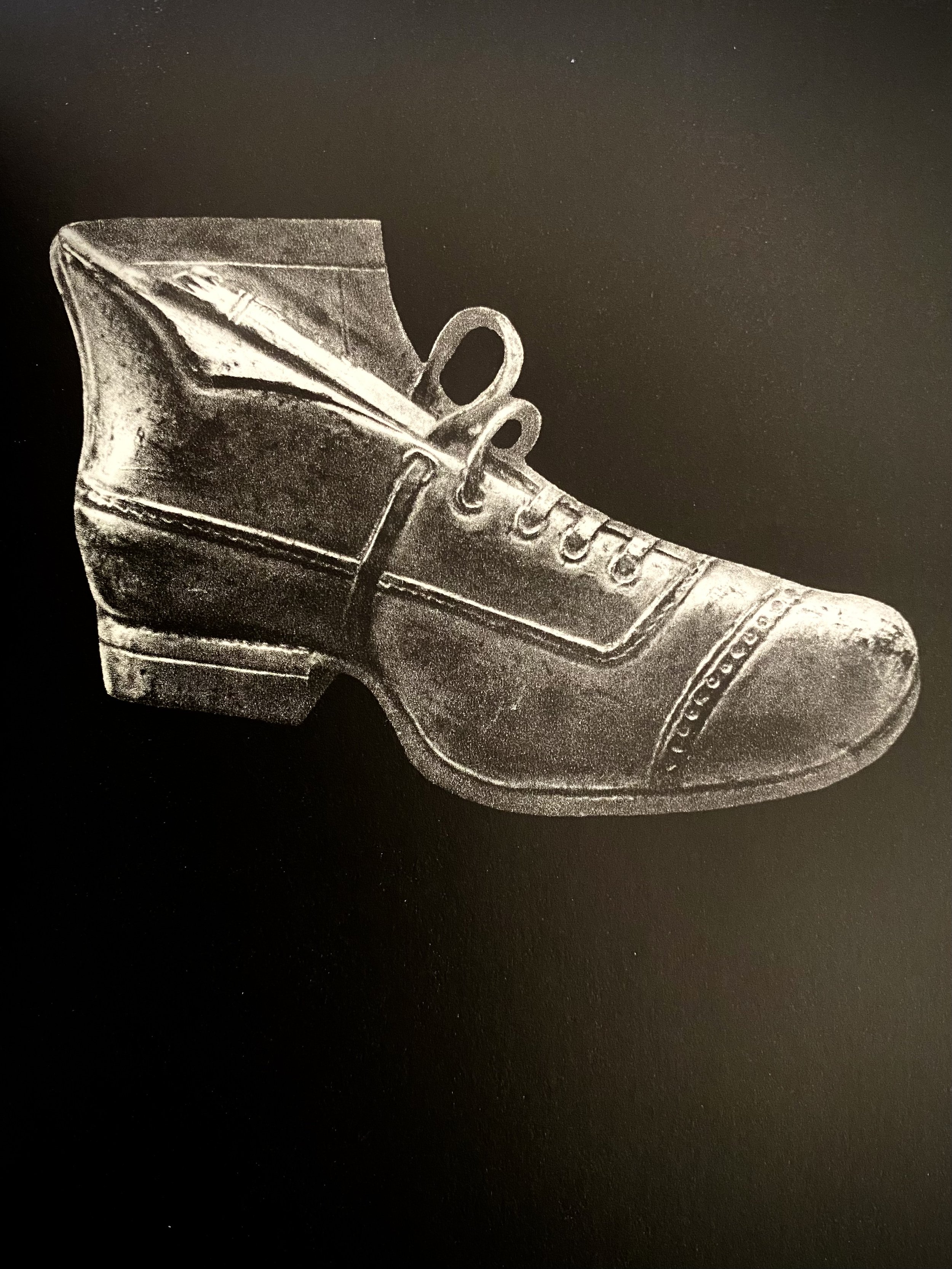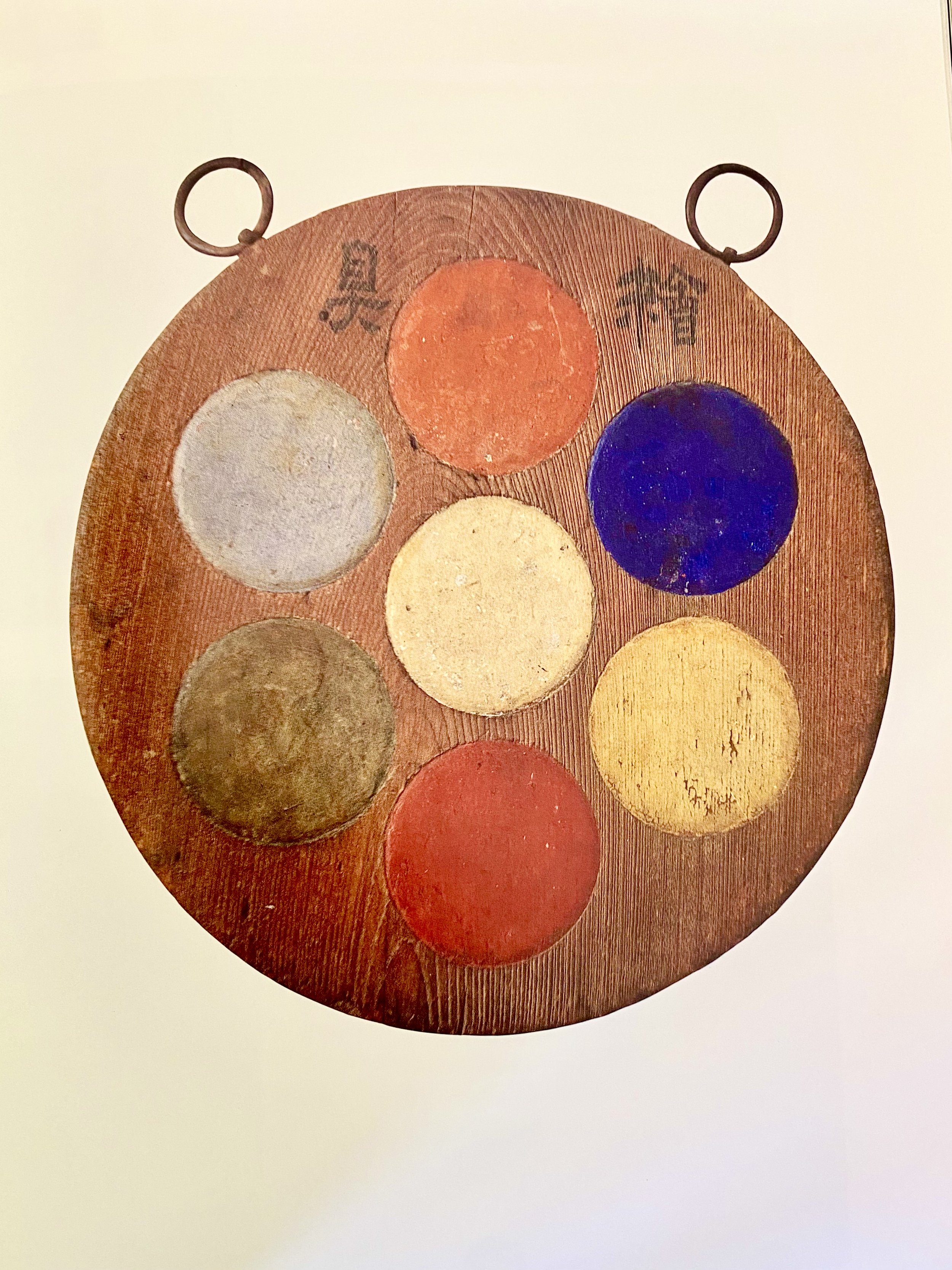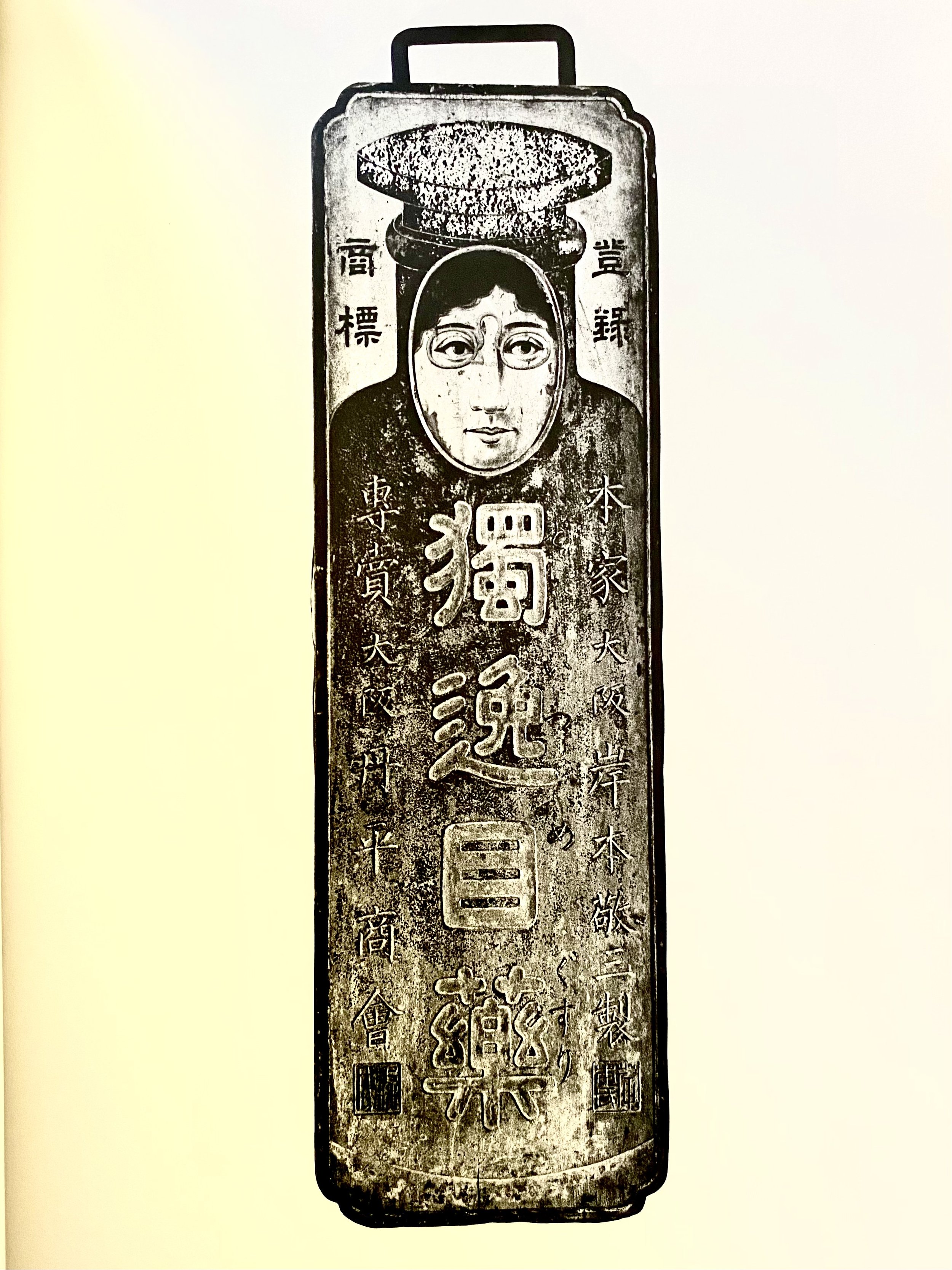 Image 1 of 5
Image 1 of 5

 Image 2 of 5
Image 2 of 5

 Image 3 of 5
Image 3 of 5

 Image 4 of 5
Image 4 of 5

 Image 5 of 5
Image 5 of 5






KANBAN Shop Signs of Japan
"Traditional kanban from Japan's feudal and early modern periods, constructed of wood and metal, brightly painted, and always ingeniously and strikingly decorated, graced the shopfronts of Japan, proclaiming the merits of a kaleidoscopic variety of products and services: tea and tobacco, swords and Buddhist rosaries, patent medicines and the latest Kabuki melodrama. Kanban took a wide range of forms: large-scale models of the products they advertised — giant teacups, spools of thread, shoes, and medicine bottles; traditional folk figures such as Fukusuke, the god of good fortune; and the ubiquitous maneki-neko, or "beckoning cat."
"This volume, the first work in English on the subject, will appeal to anyone with an eye for design and style, as well as the craftsperson and the collector. It introduces an excellent collection of over one hundred of the most remarkable and attractive Japanese shop signs, carefully chosen from several extensive museum and private collections in the United States and Japan. The twenty-four color plates and eighty-two monochrome photographs in the catalogue are accompanied by commentaries which identify the product each sign advertises, as well as where and how the kanban was hung. Crucial background material and historical notes are also included, making the text as informative as it is delightful to look at.
"The bold and witty designs of the kanban owe much to the vigor of the merchant class that created them. While the samurai spirit and the Zen aesthetic have received wide exposure in the West, the chonin, or merchants, also contributed greatly to the building of modern Japan. The introductory essay to this volume, illustrated with color prints and line drawings from the period, shows how the spirit of customer service, devotion to the firm, and the pride in one's product which are so characteristic of Japanese business were all definitive chonin values...The lasting decorative value of these kanban, so successfully wedded to their practical function, sets a standard to which modern advertising art could well aspire." (From the publisher)
"Traditional kanban from Japan's feudal and early modern periods, constructed of wood and metal, brightly painted, and always ingeniously and strikingly decorated, graced the shopfronts of Japan, proclaiming the merits of a kaleidoscopic variety of products and services: tea and tobacco, swords and Buddhist rosaries, patent medicines and the latest Kabuki melodrama. Kanban took a wide range of forms: large-scale models of the products they advertised — giant teacups, spools of thread, shoes, and medicine bottles; traditional folk figures such as Fukusuke, the god of good fortune; and the ubiquitous maneki-neko, or "beckoning cat."
"This volume, the first work in English on the subject, will appeal to anyone with an eye for design and style, as well as the craftsperson and the collector. It introduces an excellent collection of over one hundred of the most remarkable and attractive Japanese shop signs, carefully chosen from several extensive museum and private collections in the United States and Japan. The twenty-four color plates and eighty-two monochrome photographs in the catalogue are accompanied by commentaries which identify the product each sign advertises, as well as where and how the kanban was hung. Crucial background material and historical notes are also included, making the text as informative as it is delightful to look at.
"The bold and witty designs of the kanban owe much to the vigor of the merchant class that created them. While the samurai spirit and the Zen aesthetic have received wide exposure in the West, the chonin, or merchants, also contributed greatly to the building of modern Japan. The introductory essay to this volume, illustrated with color prints and line drawings from the period, shows how the spirit of customer service, devotion to the firm, and the pride in one's product which are so characteristic of Japanese business were all definitive chonin values...The lasting decorative value of these kanban, so successfully wedded to their practical function, sets a standard to which modern advertising art could well aspire." (From the publisher)